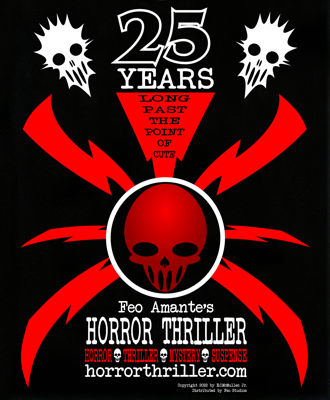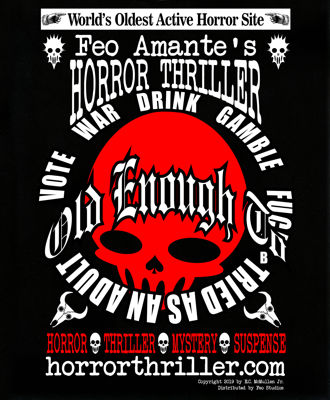 |
 |
Review by E.C. McMullen Jr. |
|
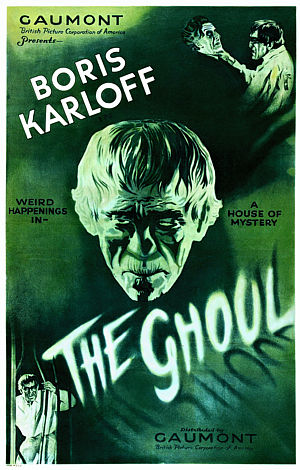
UK Release: AUG! 7, 1933 USA Release: Nov. 25, 1933 Gaumont British Rating: USA: N/A |
|||
At night a sharp dressed man goes into a non-descript building. He has no idea he's being watched or followed.
Inside, alone in a room, he prepares a drink of absinthe, carefully pouring the liquor over a cube of sugar suspended above the glass.
Silent but quickly, someone puts a knife to his throat.
"Silence please." the would be killer says. "I've waited two years to find you and I want the Eternal Light."
The knife wielder is Mahmoud (D.A. Clarke-Smith: WHITE FACE, Alfred Hitchcock's THE MAN WHO KNEW TOO MUCH) and his victim is Aga Ben Dragore (Harold Huth). Aga tells Mahmoud he's too late. He did have the jewel called Eternal Light, but sold it to the esteemed and wealthy Professor Henry Morlant.
"That robber of the dead?"
Mahmoud is familiar with Morlant but thinks Dragore is lying when he learns that the Professor paid $75,000 for the jewel (over $1.7 million in 2023 dollars). It's valuable enough to kill for but not worth anywhere near that much. How could he possibly resell it?
Mahmoud is further surprised that Morlant doesn't wish to sell it.
"He is dying and believes in its power." Dragore says.
Mahmoud won't accept that an educated man like Morlant would believe the Egyptian god Anubis would grant immortality in exchange for the jewel.
Dragore agrees, yet Morlant's death is slow and agonizing and the suffering and fear has robbed him of his reason.
Impatient after waiting two years, Mahmoud wants them both to go to Morlant's home right now and steal the jewel back, to return it to its rightful place in the tomb from which it was stolen. Dragore convinces him to wait a bit longer. Because Morlant believes in the superstition he will be buried with the jewel. The Professor's wealth has him surrounded by servants. Why go to the trouble of robbing the living when robbing the dead is no trouble at all?
Wow!
This conversation is quicker and more dramatic than my writing of it. Opening script or text crawl or narration are pointless. A tedious set-up of getting to know all of the main characters first is worthless. THE GHOUL jumps right into the story and everything we need to know about the rest of this movie was explained in less than 60 seconds in conversation between a murderous robber and a frightened man with a knife to his throat.
At this point I am glued to my chair and agog at a movie that's nearly a century old!
Sure enough, the next scene has Professor Henry Morlant (Boris Karloff: FRANKENSTEIN, THE OLD DARK HOUSE, THE MUMMY, THE BLACK CAT, THE BRIDE OF FRANKENSTEIN, THE RAVEN [1935], SON OF FRANKENSTEIN, HOUSE OF FRANKENSTEIN, THE BODY SNATCHER, ISLE OF THE DEAD, BEDLAM, THE RAVEN [1963], THE TERROR, BLACK SABBATH, THE COMEDY OF TERRORS, DIE, MONSTER, DIE!, MAD MONSTER PARTY), diseased and decrepit, struggling to hold his hand out to a statue of the Egyptian god, Anubis, on the far side of the room. Pathetic and in obvious pain, he weakly beseeches Anubis to grant him health and open the gates to immortality in paradise.
This is witnessed by his doctor and nurse, who tend to him in his final moments.
Outside of his house, a Parson rings the bell and a servant with a heavy Scottish brogue, answers. The Parson identifies himself as Nigel Hartley (Ralph Richardson: WHOEVER SLEW AUNTIE ROO? TALES FROM THE CRYPT [1972], FRANKENSTEIN: THE TRUE STORY, ROLLERBALL, DRAGON SLAYER, TIME BANDITS). He is aware of the impending death of Professor Morlant and offers his services to perform last rites to ease Henry's passing from this world to the next.
The servant's name is Laing (Ernest Thesiger: THE OLD DARK HOUSE, THE BRIDE OF FRANKENSTEIN, THE GHOSTS OF BERKELEY SQUARE) and he gives the Parson the brush off, as Master Morlant is a heathen and stubbornly unresponsive to any belief but his own.
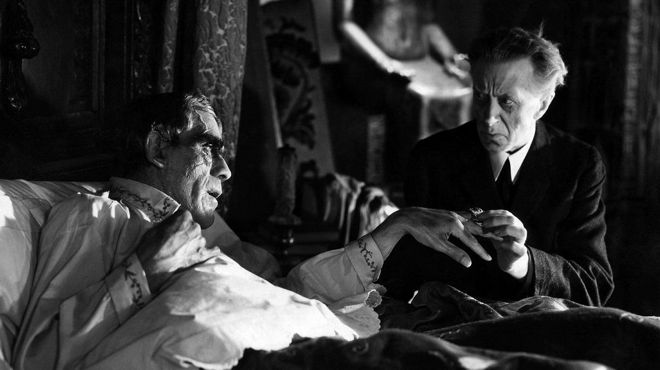
We soon see the relationship between the loyal Laing and the dying Morlant. Like the Parson, Laing is a Christian himself and fears the Hell fire his master must surely be headed for. Morlant chose Laing specifically because the man is such a devout Christian. Anyone who believed in Anubis like Morlant does might be tempted to steal the jewel of Eternal Light and gain immortality for himself. Laing, however, believes the jewel would only bring damnation upon him.
All the same, the jewel has a high monetary value and Morlant threatens his manservant, warning him that he will return from the grave at the full moon should Laing betray him.
Elsewhere in the house, going through Morlant's private papers and accounts, is his Solicitor retainer (lawyer), Broughton (Cedric Hardwicke: THINGS TO COME, THE HUNCHBACK OF NOTRE DAME [1939], THE INVISIBLE MAN RETURNS, Alfred Hitchcock's SUSPICION, THE GHOST OF FRANKENSTEIN, INVISIBLE AGENT, THE LODGER, Alfred Hitchcock's ROPE, THE WAR OF THE WORLDS [1953]). Morlant doesn't trust Broughton and warns Laing to keep him away until his body is entombed.
Morlant dies and nobody is sad about it. The Doctor goes about his business, Solicitor Broughton hovers in the room, and Laing pointedly announces that he will stay with his dead master until he is laid to rest.
However, when Laing is alone with his Master's corpse, he prays for strength, then steals the Eternal Light.
Morlant's remains are soon interred in his crypt and, per his wishes, the heavy door is locked with the key inside, for when Henry returns from the dead and wishes to leave.
After Morlant is entombed, Broughton, having not found the Eternal Light in Henry's house, accuses Laing of having taken it. Laing denies it but Broughton threatens him with legal trouble if he doesn't come clean. Laing goes home and Broughton puts his Chauffeur to work watching him.
Laing, realizing he's being watched (the Chauffeur is a better driver than a detective), makes good his escape.
No sooner does Broughton get back to Morlant's estate but that he finds an angry Ralph Morlant (Anthony Bushell: QUATERMASS AND THE PIT [TV]), heir to his Uncle's estate, kicking the old carpet and demanding to know why the solicitor is being so cagey over the reading of the will. When it comes to gruff and aggressive, the old solicitor is no match for the brash young Ralph who knows that the law is on his side and the lawyer is acting quite suspicious.
Broughton is running out of time and he has to find that jewel now. What he doesn't realize is he's not the only one looking for it. Mahmoud is watching from the shadows and Dragore is ready to make his move.
As independent as Ralph is, he's not the only heir. There's his cousin by marriage, Betty Harlon (Dorothy Hyson). Though they've never been on the best of terms, they both suspect something fishy about Broughton. When Betty is mugged by Mahmoud, who wrongly believes she may have the jewel, she is only saved from death by the arrival of Ralph. The two decide to call a truce and stand shoulder to shoulder against Broughton and the would-be mugger they suspect is Broughton's henchman.
Soon Dragore is on the scene, presenting himself as a fellow Egyptologist like Morlant and wishing to offer his condolences to the family of his old friend.
At this point you may be wondering, "Yeah but, what about The Ghoul?"
Well you see, while all of this late night cloak and dagger is going on, tonight is the night of the full moon. Morlant rises and finds the jewel he was supposed to have in his clenched and bandaged hand, gone. Morlant is now the ghoul and he goes on a murderous rampage, as he must present the jewel to the statue of Anubis before 2:00am.
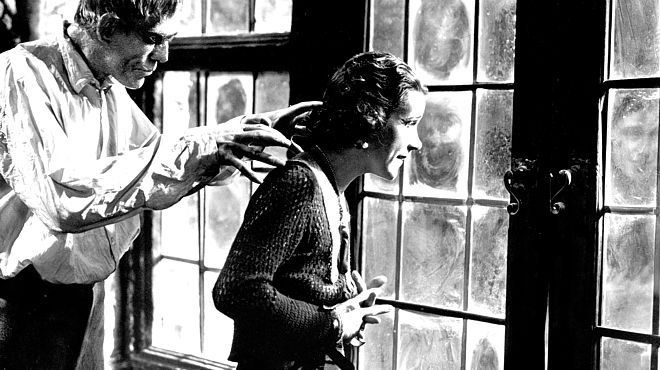
As a Ghoul, Morlant wasn't immortal, only driven and stealthy. If someone thought to shoot him in the heart or head, instead of being terrified by a walking corpse, that would have been it for Henry. He's not some mindless revenant and he's in a hurry.
Boris Karloff is wholley believable as a pain-wracked Henry Morlant, suffering to the point of insanity and needing to believe that the statue of Anubis will come to life if he pleases his god.
THE GHOUL, its tale, and all of its characters, including the annoying comedy relief, serve wonderfully as a period piece. We the audience learn of what's going on organically, of what's going on as the characters converse, ask questions, and try and form a picture of what is happening around them.
Written by Leonard Hines, Roland Pertwee, and Frank King (also based on his best selling novel and play), none of them ever wrote another Horror movie again. Truly a loss because THE GHOUL is an outstanding work.
Directed by T. Hayes Hunter (THE CRIMSON STAIN MYSTERY, WHITE FACE), this movie was considered lost for over 70 years, only recently discovered in the 21st century and carefully restored from the original nitrate film.
Someone could remake it, but there's no need, THE GHOUL remains an excellent movie.
Five Shriek Girls.





This review copyright 2023 E.C.McMullen Jr.

|
| DRESS NICE | |
| YOU MIGHT ALSO ENJOY (Sub-Section: BACK FROM THE DEAD) |
||
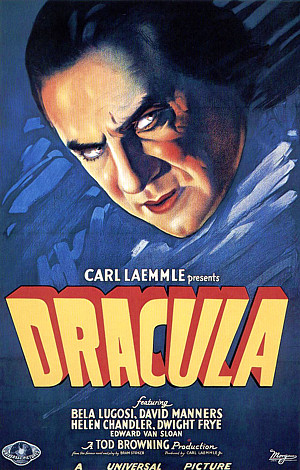 |
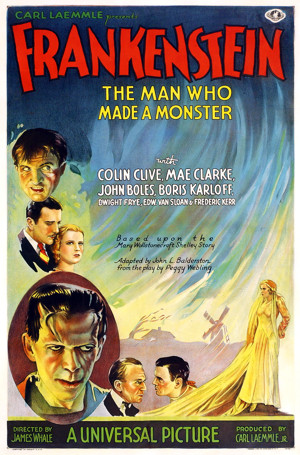 |
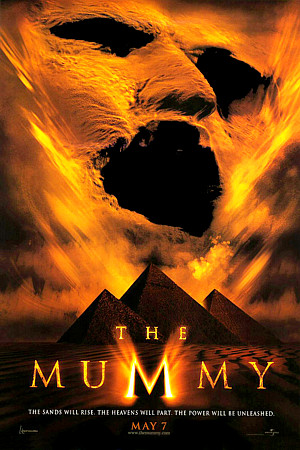 |
| DRACULA MOVIE REVIEW |
FRANKENSTEIN MOVIE REVIEW |
THE MUMMY MOVIE REVIEW |
FEO AMANTE'S HORROR THRILLERCreated by:E.C.McMullen Jr. FOLLOW ME @ |
| Amazon |
| ECMJr |
| Feo Blog |
| IMDb |
| Stage32 |
| Twitter X |
| YouTube |
| Zazzle Shop |
